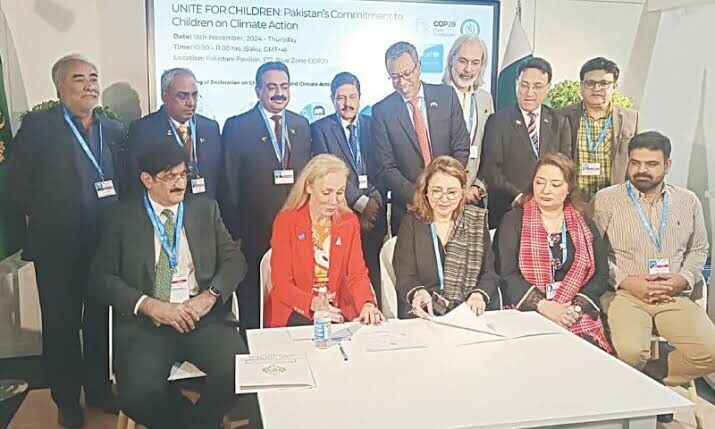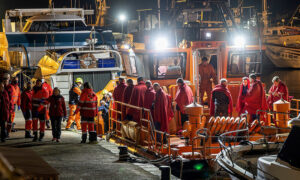• ‘Recharge Pakistan’ initiative to mitigate flood risk through community-led initiatives
• Water quality monitoring project launched with Korean support
DEVASTATED by floods year in and year out, Pakistan on Monday unveiled plans for ecosystem-based adaptation (EbA) and ensuring better water quality, as it looks for a transformative approach to turn the tide of these disasters.
“While Pakistan continues to face escalating climate risks, including devastating floods, adopting and promoting EbA strategies in managing the growing flood risks and its adverse impacts on infrastructure, lives and livelihoods of the people is crucial to protecting vulnerable communities, restoring degraded ecosystems and building climate resilience across the country,” Prime Minister’s Climate Change Coordinator Romina Khurshid Alam said.
She was speaking at an event ‘Recharge Pakistan as Life to Indus’ held at the Pakistan Pavilion on the sidelines of COP29.
“We must realise that traditional flood water management or defence mechanisms alone can no longer provide long-term solutions to the floods, which are becoming increasingly frequent and intense,” a statement issued by the ministry quoted her as saying.
“By investing in nature-based solutions, we not only reduce vulnerability to flooding but also support biodiversity, agricultural productivity, and sustainable livelihoods,” she said.
At another panel, titled ‘Clean Water and Climate Resilience: Transforming Pakistan’s Water and Agricultural Landscape’, Ms Alam said that global heating had increased temperatures of water bodies, which were more prone to algal blooms, including toxic cyanobacteria, which harm aquatic life and contaminate drinking water sources.
She revealed that a new $4.4 million project was being implemented with the help of the Korea International Cooperation Agency to monitor and enhance drinking water quality in Islamabad, Punjab and KP. This project will benefit over 62 million people, she added.
Recharge Pakistan
Giving an overview of the Recharge Pakistan project, WWF-Pakistan Director-General Hammad Naqi Khan said that monsoon rains and hill torrents, particularly during summer, were causing massive damage.
Efforts would be taken under the ambitious Recharge Pakistan project to restore dried up or blocked wetlands in the country to store excess floodwater for domestic and agricultural use as well as for groundwater recharge purposes during dry months, he said.
Besides, watershed management interventions will aim to replenish 1.6 million cubic meters of soil infiltration water. The initiative will also benefit directly around 680,000 people and seven million people indirectly on either side of the Indus.
Global Lead of Climate and Energy at WWF-International and ex-COP president, Manuel Pulgar-Vidal, said this largest-ever adaptation project being implemented in Pakistan was a good reflection of the global narrative shift from climate-vulnerability to climate-resilience.
“But the success of this project…would be dependent on the scale of involvement of local communities living in the Indus river basin,” she cautioned and added that “because, most of similar projects have met failure for lack of local communities’ involvements in such interventions.”
Kristen Sarri, acting chief climate officer at USAID International, said her agency had engaged with the Pakistani government to help manage floods and their impacts on people and their livelihoods by adopting smart and viable water management solutions in the river basin areas.
“We will also enhance our efforts to next level by restoring forests, the Indus ecosystem and building climate resilience of the people and their livelihoods under the Recharge Pakistan project,” she added.
Published in Dawn, November 20th, 2024







